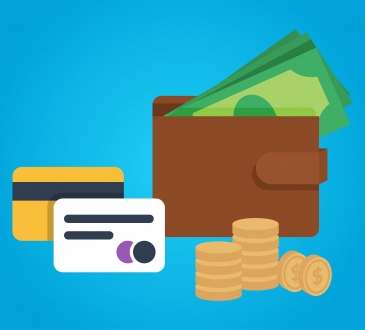
It might seem like the worst-case scenario situation: you have existing or impending legal fees to pay for, and no way to get the money. But everyone deserves the right to legal representation, and there is always a financial solution, no matter your circumstances.
For criminal cases, a judge may appoint you a lawyer, but not everyone qualifies for representation at no cost. Chances are, if you are in a civil lawsuit, you will need to pay for your attorney’s services by yourself. Many attorneys will be sympathetic to your situation, but others will demand a retainer upfront before they commit.
Fortunately, there are a variety of ways to finance legal fees. Research the solutions available to you and make an educated choice.
Payday loans
Unsecured personal loans, colloquially known as “payday loans”, get a bad rap. Personal lenders are often misrepresented as shady loan sharks who prey on the vulnerable in their time of need.
Some people do overuse payday loans and end up drowning in debt, but it’s unlikely this will happen if you use their services for a singular, focused purpose. In other words, a payday loan used for an attorney’s retainer fee is much more reasonable than an impulsive payday loan used for a new pair of designer shoes.
Online payday loans are available through reputable lenders who understand the unique needs of people in crises. Even if your credit is poor or you’ve been rejected by other lenders, the online application process only takes a few minutes, and payment is typically deposited directly into your bank account within 24 hours.
Payment plans
Lawyers often charge by the hour, although in some cases, they will charge you a flat rate. This is particularly common for basic procedural arrangements. Hourly rates in large cities tend to be higher, while small-town attorneys don’t charge as much. Denver criminal lawyers may charge $400 per hour, while a Midwestern divorce lawyer might only set you back $100 per hour.
Be aware that a lower hourly rate may not necessarily be cheaper in the long run. Legal work can take up many hours and the costs can add up very quickly. Paying a flat rate upfront may be a better option for you if you are uncertain about how much your final costs will be.
Some attorneys, but not all, will allow for payment plans. If pro bono work is entirely off the table, this is the next best option. Lawyers are often willing to consider payment plans for clients and cases they are especially passionate about.
Crowdfunding
In the era of GoFundMe, legal cases can garner plenty of public interest and notoriety, even internationally. If you don’t feel comfortable requesting a payment plan or taking out a personal loan, you can always crowdsource your legal fees on the internet or in your local community.
If you make your case sound compelling to the public or share it actively on social media, it may spark the interest of some notable people who can provide you with a larger platform. Plenty of people have paid for the entirety of their legal fees through crowdfunding.
Of course, everyone’s situation is different, so you will have to review the options available before you choose which is best for you. It is not advisable to get in over your head and take on more than you can reasonably afford to pay back.



